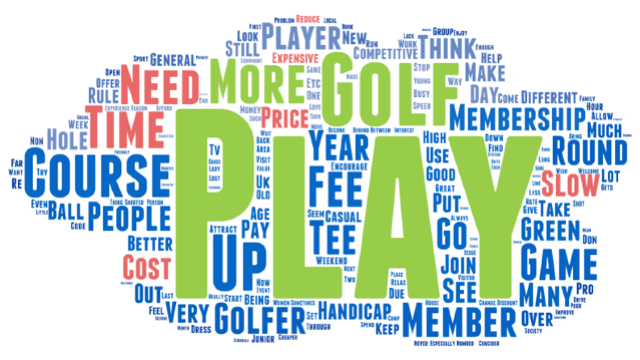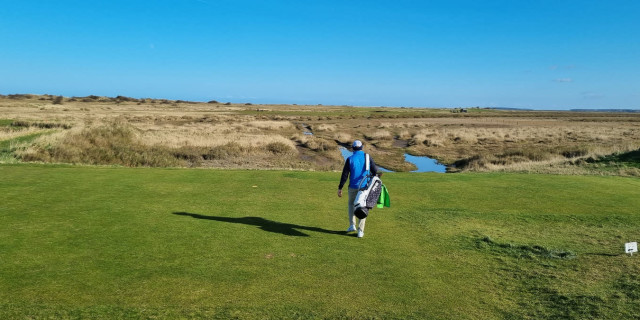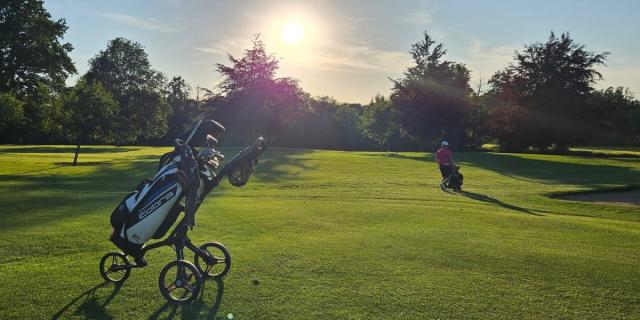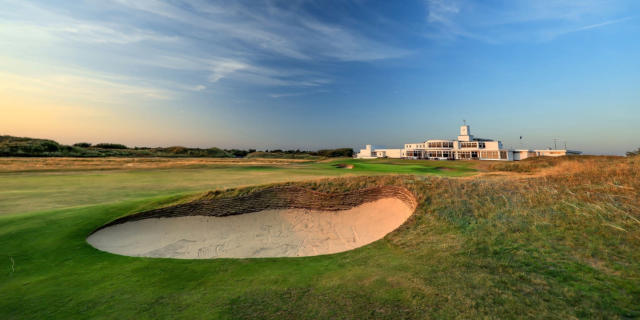
Slow play – What challenges do golfers and golf clubs face?
Following the 2015 annual survey conducted by Golfshake.com, which received over 4,500 results from regular active golfers (70% played 3 times per month), Sports Journalist Josh Carr analysed the results of the survey focusing on the questions related to slow play. Is slow play an issue? Is the issue perceived differently by different demographics? And what can be done to combat slow play?
Time was a big issue in the 2015 Golfshake survey, whilst 95% of golfers responding said they would play more golf if they could unfortunately 71% stated that lack of time was the biggest factor. For the 30-50 age demographic this rose to 81% and interestingly 45% of the independent golfers (non club members) said they did not visit the club house due to lack of time. Thus if we are already pushed for time slow play in golf will have a big impact.
Slow play is a problem at almost every golf club in the UK and worldwide. In recent years it seems the time it takes to complete 18 holes has increased in both social and competitive golf. Sadly, this is drawing people away from the sport to take up other activities and hobbies that take up less of their valuable time, a trend that golf does not need in its current situation with membership declining.
There are several issues surrounding slow play and many factors that lead to the increase in round times such as people who are new to golf, the rules and the etiquette and other factors such as large societies, tough courses and the state of the professional game.

How do we solve this issue and is slow play an issue for everyone?
Firstly, I am very much of the opinion that rounds of golf are taking far too long, more so in competition golf, and the problem needs to be addressed. Amateur golfers need to realise that they are not professionals and therefore should not spend days on end lining up putts, creating obsessively long pre-shot routines and most certainly should not spend unnecessary amounts of time deciding whether their playing partner’s ball is an inch closer to the hole than theirs. Having said that, I am not of the opinion that a round of golf should be over and done with within two and a half hours but five hours + on a golf course is a bit excessive.
The Golfshake survey highlighted that slow play is deemed an issue with 75% of respondents saying that slow play can be an issue during social play at times. Additional analysis highlighted that 44% of club golfers said that slow play was an issue at times in club competitions and 13% of independent golfers stated that slow play had stopped them playing more golf - this figure was up by 65% from 2014. Furthermore 11% of independent golfers said that slow play was a factor in them stopping their golf club membership at their club.
So, let’s take a closer look at some of the factors and issues that affect slow play.
New to golf/etiquette & attitudes
It would appear in the modern era that people new to the sport are not being taught the rules and etiquette of the game and this has had an adverse affect on slow play. In the Golfshake survey, one respondent said: “Slow play is killing the game and many new players don’t seem to understand the etiquette of the game such as letting quicker players through,” with another adding: “Players not understanding both the rules of golf and the etiquette are spoiling golf.”
Problems like these can be addressed quite easily. For example, when someone joins a golf club they should be informed of the rules as well as key things such as how to speed up play. This could include simple tips such as where to place your bag around the green in relation to the next tee. How often have you been waiting to play your approach shot only for the group in front to do a full lap of the green before heading to the next tee? However, this can only be addressed with the induction on new members at clubs and with an increasing rise in nomadic non club golfers who takes responsible for this ?
Having said that, it is not only some new members that appear to be the problem. Many respondents to the survey also complained about the “snobbish” behaviour of senior members when it comes to allowing groups to play through.
Now, I understand that senior players have just as much right to be on the course as anyone else and I also understand that this does not apply to every single senior golfer across the country but there are more and more comments that some seniors feel as though they run the golf club. Often during the week seniors will go out in large groups that consist of many fourballs and are reluctant to let any smaller, faster groups play through them. If this was in a recognised competition that would be acceptable, but more often than not it is just a knock about with their friends. Comments from the Golfshake survey back up this point with one example saying: “Too many senior members are not prepared to move with the times and are stuck in the past.”
However, once again there is a flip side to this with many golfers stating that golf should be played for the enjoyment and slow play isn’t a factor when it comes to enjoying their round. The social side of golf is equally as important as the competitive side and most golfers are beginning to accept that, more so in a competitive round, that they will be on the course for four hours and maybe more.
In the Golfshake survey, one respondent said: “I don’t like all the press about slow play. It should be about enjoying your shots as well as your partners.”
Golf has always been regarded as a respectable sport, so surely it is only right that you take time to respect your playing partners by allowing them to play in turn and not be racing up to the greens while they’re still playing? The same respondent added: “I’ve watched some players who moan about slow play hit their shots and are putting their club away and walking before their ball hits the ground.” Surely that isn’t enjoyable golf? Essentially golf is about getting the ball in the hole in the least amount of shots. You are given a scorecard at the start of your round and not a stopwatch for a reason.
Another respondent summed up the situation perfectly for those who don’t believe slow play is a problem by saying: “Too much is made of slow play. Yes it can be frustrating but we are out there to relax, get fresh air and enjoy.” Since when was golf all about getting around as fast as you can?
Professional golf
Another major factor affecting slow play in the amateur game is the current state of the professional game. For example, to complete a round at this year’s US Open, it took just under six hours. This is then passed down into the amateur game with golfers believing it is acceptable to take nearly five hours to complete a round of golf. One respondent to the Golfshake survey said: “It is a joke how long most of the professional players take to play a round. Their example is repeated by many people new to the game,” so it is no wonder rounds of golf are becoming longer.
A lot of respondents to the Golfshake survey suggested that “pace of play stems from the pros, which makes it less appealing than it should be,” so what should the officials of the European and PGA Tours be doing to combat this? Well, the European Tour introduced a new “Monitoring Penalty” during the Desert Swing, but other than puzzling most of the golfers who received a penalty, this only sped up their rounds by five minutes.
Are some courses too tough?
Another problem that often arises when talking about slow play is how tough the golf course is you play. This ranges between all sorts of reasons such as the length of the course to the difficulty of the greens. I know for a fact at my course that the length of the rough in the trees is far too high and you often see groups spending a long time searching for balls, with a lot of members saying that being in the trees is punishment enough.
Simple things like shortening the rough, the use of different tees and accessible pin positions can all help speed up play and some clubs have “taken steps to speed up golf by cutting back rough” was commented by one respondent in relation to helping speed up social and competitive golf.
However, you then have to wonder if by doing all this that golf will become too easy. I understand that golfers are looking to improve the pace of play at their clubs but by playing a shorter course, or using “easier” pin positions, will this not make the game less enjoyable. In my opinion, the courses you play that have no memorable challenges tend to be lower in your mind than those that offer challenges such as deep bunkers or water hazards.
How do golf clubs combat slow play?
Golf clubs are slowly beginning to introduce shorter formats of the game to try and entice those who do not partake in 18 hole competitions due to time constraints. The Golfshake survey showed that from the 95% stating that would like to play more golf - 4.8% of golfers stated that the lack of a shorter form stopped them from doing so. What is also more encouraging for golf clubs is that 43% of golfers surveyed said they would be interested in shorter forms - even more encouraging was the 56% from the independent golfer demographic that said they would consider a shorter format of the game if it was introduced.
Some golfers have argued that this won’t help with slow play as golfers won’t change their routine, they will play just as slow but over nine holes instead of 18. I agree completely, however it does give those who do not have five/six hours of their day to spend at the golf club the opportunity to play some form of social or competitive golf. It also allows those who may not have the fitness to complete 18 holes the chance to play another format.
Another way to combat slow play would be to introduce “Ready Golf”, as adopted by Lichfield Golf Club in Staffordshire. Ready Golf offers hints to golfers to help speed up play, which includes:
- Tee off as soon as the group ahead is clear
- The player who is ready should hit, not necessarily the one with the honour
- Don’t all go to one ball, go to your own ball
- Hit when ready without delay
- Take your practice swings immediately if it does not disturb the player hitting.
- If you are the first one at your ball and you’re ready to safely hit, let others know that you are hitting.
- Limit lost ball search to three minutes, except under competition rules
- Study your putt while others are putting
- Continue putting until holed out unless you will step on someone’s line or it is a tricky putt
- If you can’t score, pick your ball up.
Finally, in competitions it may be a good idea for golf clubs to have marshals on the golf course to help speed up play. If a group has lost a hole, it may help having that neutral figure telling the group they need to hurry up or to let the group behind play through.
All in all, if the problem isn’t addressed soon then you could see round completion times increasing even more over the years. Not only does this spoil the fun of the game but it also causes people to not take up the sport or quit the game, as they cannot afford to spend that much time at the golf club due to business or family reasons. We need to find ways to reduce the round completion times, while maintaining an enjoyable challenge.
What do you think? Is slow play a problem at your course? Use the comments section below to let us know your feelings on the current state of the game in terms of slow play.
Surely, if things carry on the way they are, round completion times will only continue to rise? Or is this just golf's perennial problem and we all actually enjoy moaning about slow play for the sake of it?
Tags: slow play industry insider golfshake golf survey golf data









